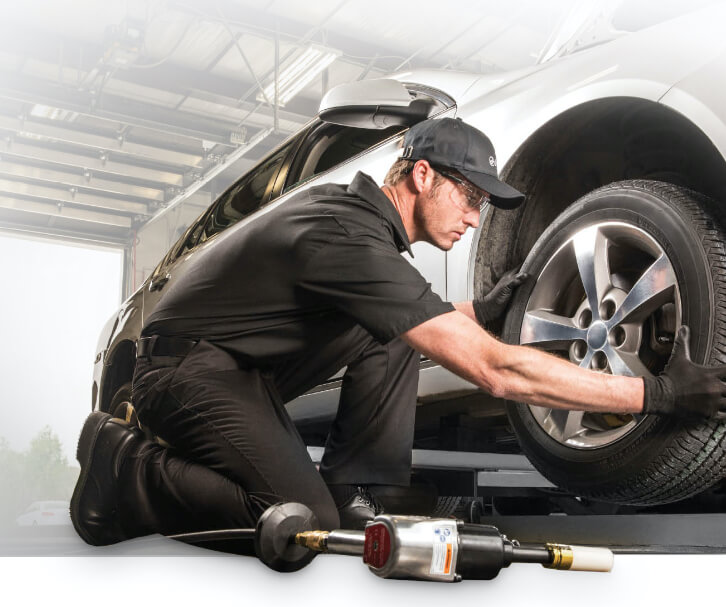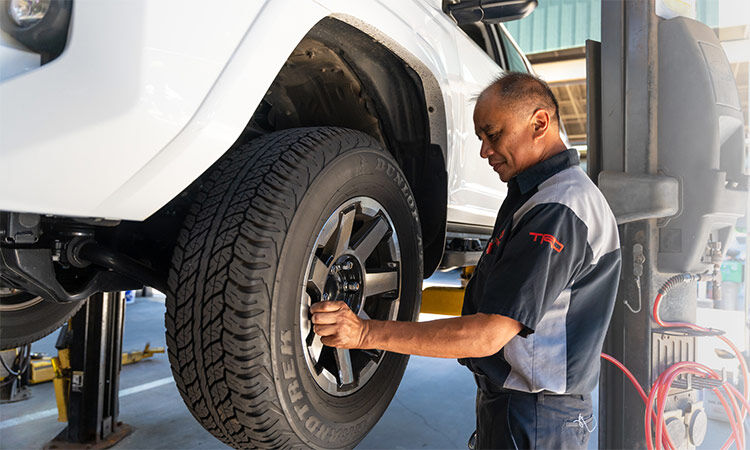The Link In Between Tire Service and Fuel Efficiency
Amongst the various elements that affect gas performance, tire solution stands out as an essential component that usually goes overlooked. The intricate connection between tire upkeep and fuel economy is a testament to the elaborate operations of a vehicle.
Value of Proper Tire Inflation
Proper tire rising cost of living is an important element in making best use of gas efficiency and guaranteeing ideal vehicle efficiency. On the other hand, overinflated tires can lead to a harsher trip, irregular tire wear, and lowered grip - morris tire service.
Preserving the appropriate tire pressure not only boosts gas effectiveness but likewise boosts driving safety. Appropriately inflated tires provide far better handling, stopping, and general efficiency when traveling. Additionally, they add to extending the life-span of the tires, conserving you cash over time by reducing the regularity of replacements. On a regular basis checking and changing tire stress, specifically soon journeys, is a straightforward yet effective way to optimize your vehicle's gas economy and guarantee a smooth driving experience.
Influence of Tire Footstep Depth
Preserving the advised tire stress is vital for ideal automobile performance and gas efficiency; similarly, the tread depth of your tires plays a crucial function in making sure safety and traction when traveling. Tire tread deepness straight impacts the capability of your tires to hold the road surface, specifically in wet or slippery conditions. As tires put on down, their tread depth reductions, impacting their capacity to network water away and maintain correct call with the roadway. The advised minimum step deepness is generally 2/32 of an inch, but also for enhanced safety and security and performance, several specialists suggest changing tires before they reach this factor. Correct walk depth not just makes sure better handling and braking however additionally adds to fuel efficiency by decreasing moving resistance. Regularly evaluating your tire step depth and replacing tires when required is a basic yet effective means to advertise both security and fuel performance when driving.
Duty of Wheel Placement in Efficiency
Guaranteeing accurate wheel positioning is vital for enhancing vehicle efficiency and maximizing gas economic climate. Proper wheel placement entails readjusting the angles of the wheels to manufacturer specifications, ensuring that they are alongside each various other and vertical to the ground. When wheels are misaligned, it can result in irregular tire wear, raised moving resistance, and lowered gas effectiveness.

Furthermore, precise wheel placement can also enhance managing and stability, minimizing the quantity of power needed to steer the car (tire shop near me). By reducing read this post here unneeded friction and drag, proper wheel positioning plays an essential function in improving overall vehicle effectiveness and gas economy. Routine hop over to here wheel alignment checks and modifications are essential for preserving ideal efficiency and making the most of fuel savings
Link Between Tire Maintenance and MPG
An important facet of enhancing gas performance in cars is weblink the upkeep of tires and their straight influence on miles per gallon (MPG) Correct tire upkeep plays an important duty in maximizing gas economic situation. One vital factor influencing MPG is tire pressure. Underinflated tires increase rolling resistance, creating the engine to work more difficult and melt more fuel. On the other hand, overinflated tires lower the call spot with the road, causing irregular wear and reduced gas performance. Regularly inspecting and preserving the appropriate tire stress can significantly enhance MPG.
Additionally, tire step depth also affects fuel performance. By guaranteeing tires have sufficient step depth, vehicle drivers can improve both security and gas economic situation.
Essentially, appropriate tire maintenance, consisting of monitoring tire stress and tread depth, is directly linked to attaining optimal MPG. By incorporating regular tire evaluations and maintenance into a car treatment regimen, drivers can not only expand tire life however additionally boost fuel efficiency, eventually saving cash and decreasing environmental effect.

Tips for Fuel-Efficient Tire Care
Given the essential connection between tire upkeep and gas performance, implementing effective strategies for maximizing tire care is crucial to enhancing general car efficiency. Revolving tires at advised intervals promotes also tread wear, improving fuel performance by making certain all tires contribute equally to lorry performance. By incorporating these fuel-efficient tire treatment suggestions right into a regular upkeep schedule, vehicle drivers can make the most of fuel efficiency, decrease running expenses, and lengthen the life of their tires.
Verdict
By on a regular basis preserving tires and adhering to fuel-efficient tire care tips, vehicle drivers can maximize their car's efficiency and decrease fuel usage. It is necessary to prioritize tire upkeep to not just conserve cash on fuel prices however likewise to promote general automobile efficiency.